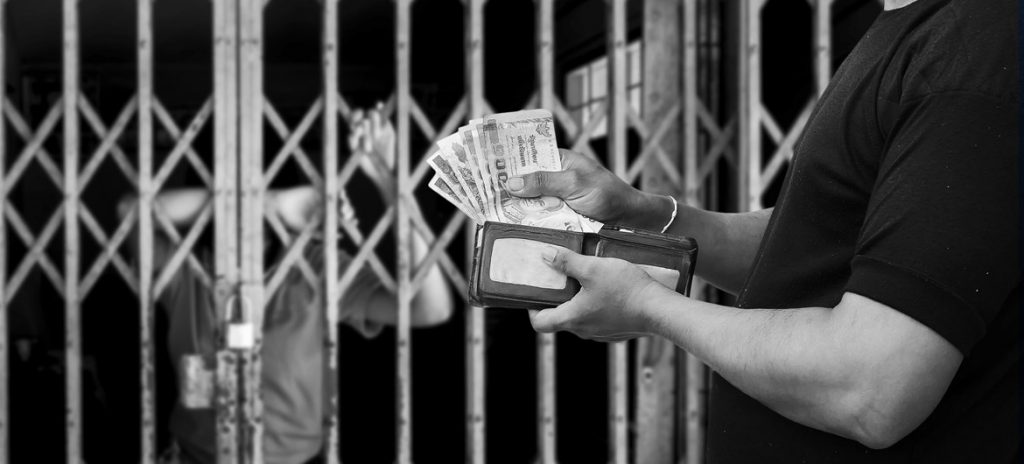Imagine for a moment that you’re living an extremely underprivileged life in an impoverished region. You are one day approached by people who offer you a deal. You’re promised of something that sounds almost too good to be true; work in another country and a better life. They tell you that they will arrange everything. You are promised work and good pay compared to where you live. All you have to do is pay them a fee from your salary, which they will kindly lend to you beforehand. Since you have nothing to lose, you end up taking your chances. Maybe you’re in a position where you have to support other people financially, so the risk is worth it. You’ll be going somewhere far, a place where you don’t know anyone and don’t understand the language or how the society works.
At some point, you figure out that it isn’t what it is supposed to be. Maybe the work isn’t what it was promised to be. In the worst case, people are being forced into prostitution. You were supposed to get paid, but they keep your money, they say they’re taking what you owe them. You need help, but you’re afraid to contact the police because maybe you might get in trouble. Your life is controlled by other people; they manage everything for you.They might threaten you with violence. There’s nothing you can do.
You’re not supposed to be able to own anyone, people are not a commodity. Unfortunately, slavery is not a thing of the past; according to the UNODC Human Trafficking occurs virtually everywhere. No matter if you’re living in an industrialized country or a developing country, you live in a place that is likely to be either a destination or an origin of the victims of human tracking.

Every year, thousands of people, men, women, and children fall into the hands of human traffickers. Human trafficking has many different faces. Around 80 percent are forced into prostitution but forced labor accounts for 18 percent. These people might work in places such as a restaurant. The International Labour Organization estimates that there are 2.4 million victims that are forced to labor.
Significant global issues such as human trafficking can feel overwhelming. How can a young person stand up to something like this? Since human tracking is so widely spread, there’s a good chance that there are victims where you live. You might even interact with them in your everyday life. One of the biggest problems with human trafficking is recognizing the victims, and this is something you can contribute to.
The victims are often unable to come and go as they please. They have very harsh working conditions, and they can work hours that are inhumane. These kind of things are something that you could be able to spot as an outsider. They can also appear fearful and submissive. Some of the victims might even have signs of physical abuse. They might not have any knowledge of their whereabouts, what is the name of the city where they live in, or they won’t be able to describe where they live.
You might not be able to do much about the organized crime that surrounds human trafficking, but as an individual, you can keep your eyes open. There are a lot of people out there who need help.
3
Leave a Reply